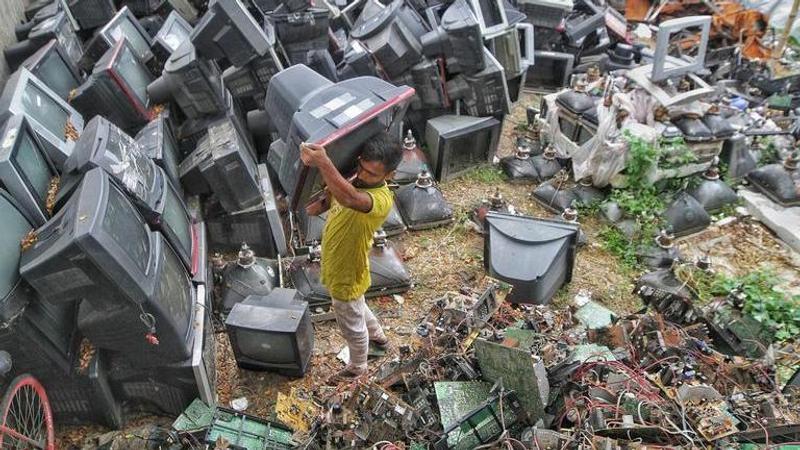Published 21:49 IST, July 31st 2023
Karnataka Govt gears up with strict policy for e-waste management to ramp up recycling
E-waste contains various types of chemicals like beryllium, cadmium, mercury, lead, etc. It has been identified as very dangerous for the environment.

The state government came up with a stringent separate policy to ensure that the management of electronic waste, which is harmful to the health and the environment, is done in a systematic manner. While the regulations for e-waste management are already in place, the maintenance and recycling are not in place as much as it should have been. The state is far behind in that regard. So, the government has decided to prevent the risk of e-waste by formulating a watertight policy.
Bengaluru ranks 3rd in the country in e-waste generation and the 'IT city' produces about 1.2 lakh tonnes of electronic waste annually. There are around 200 centres in Bengaluru that handle e-waste recycling. However, experts say that the recycling units are working properly and the huge amount of waste generated in the city is affecting nature and health.
The State Pollution Control Board also framed separate regulations based on the guidelines framed by the central government regarding e-waste management. However, it is not being maintained and monitored properly. That is why the state government intends to tighten the rules, say sources in the environment department.
Eshwar Khandre, the Environment and Forest Minister told Republic, "E-waste contains toxic substances. They need to be processed and recycled properly. The existing law needs to be implemented properly. A separate policy in this regard has been discussed. A new policy will be brought in as soon as possible. People's health and environmental management are very important for the government."
What is the e-waste being generated?
When various items like computers, television, VCRs, stereo, fax machines, copiers, microwaves, cellphones, remotes, etc. are not in use, they are identified as e-waste or electronic waste. An official said, "The overall objective is to conduct an audit of waste management. From the use of electronic materials to recycling, the overall objective of the policy is to ensure that recyclable materials are properly utilised and maintained."
E-Waste a hazardous toxic pool of chemicals
It is estimated that 60 million e-waste is generated annually in the world. According to it, a person produces 7.6 kg. However, recycling is only 17.4 per cent. This is a figure in the world, but it is almost the same in all countries.
E-waste contains various types of chemicals like beryllium, cadmium, mercury, lead, etc. It has been identified as very dangerous for the environment. If these chemicals are not handled properly, they can enter the soil, groundwater, and water bodies and affect the animals, birds and humans.
Stress on recycling and reuse
There are 200 recycling centres in Bengaluru. According to them, 100 per cent e-waste management is being done. But the government is not ready to accept it. This is because the recycling rate is 17.4 per cent. Therefore, apart from conducting audits, some rules will be framed for these centres as well.
Updated 21:49 IST, July 31st 2023




